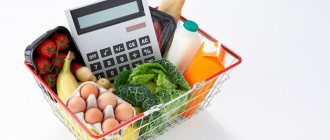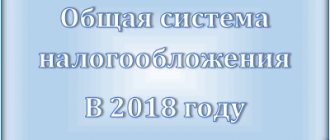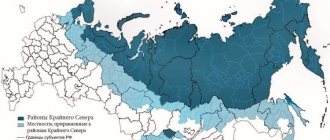The Tax Code of the Russian Federation regulates the lists and procedures for collecting excise taxes from manufacturers (or in some cases from sellers). This indirect tax is usually included in the cost of the finished product or in the tariff of the service provided. Despite the fact that legally this contribution is made by the company that produces, for example, alcohol, it is actually paid by the buyer due to the markup. In the article we will tell you about excisable goods - what they are, what applies to excisable products and by what rule the tax rate is calculated.
General information
The premium to the commodity value is determined by the state. It goes to the state budget with the aim of filling it, and also has the task of regulating the quantity of output and the quality of this product. All categories have a common distinctive feature - this is an area with high profitability and low production costs, which makes them accessible to taxation. Of all the taxes received by the state budget in Russia, this one takes up to 8%, which can be called a very large influx of funds into the treasury. Not only commodity units produced in the Russian Federation are subject to excise duty, but also those imported from abroad.
The payer can be either a manufacturer or a supplier, an importer, or a seller - a legal entity engaged in sales and receiving material assets during the transfer of ownership of a certain batch. Most often, the tax is assessed after production, but sometimes it must be paid by the person who sells the product, for example, if he received it as confiscated goods or after a court decision.
All excise products are regulated by regulations; its current list can always be found in Article 181 of the Tax Code of the Russian Federation.
The state often positions excise taxation as a measure to regulate sales. For example, an increase in prices for alcohol and tobacco should lead to a decrease in purchase and, accordingly, consumption.
Estimated cost of tobacco products
An example of determining the estimated cost of cigarettes sold. During the tax period, two brands of cigarettes were sold
Alpha LLC produces filter cigarettes of two brands: Balkan and Zvezda.
In July, the organization sold cigarettes of both brands in the following quantities:
- “Balkan” brand – 75,000 cigarettes (3,750 packs);
- “Zvezda” brand – 37,000 cigarettes (1,850 packs).
Packs of Balkan cigarettes sold in July had a maximum retail price of 50 rubles. On packs of Zvezda brand cigarettes – 55 rubles.
To calculate the excise tax, Alpha's accountant determined the estimated cost for each brand of cigarettes sold in July:
- “Balkan” – 3750 packs × 50 rubles. = 187,500 rub.;
- “Star” – 1850 packs × 55 rubles. = 101,750 rub.
There is one excise tax rate for all filter cigarettes. Therefore, the accountant calculated the total estimated cost of filter cigarettes sold in July: RUB 187,500. + 101,750 rub. = 289,250 rub.
An example of determining the estimated cost of cigarettes sold. During the tax period, cigarettes of the same brand were sold with different maximum retail prices
Alpha LLC produces filter cigarettes of one brand. In August, the organization sold 100,000 filter cigarettes (5,000 packs).
From August 1, based on the notice on produced packs of cigarettes, Alpha indicates the maximum retail price of 60 rubles.
During August, Alfa sold both cigarettes produced in August and cigarettes produced in July. In July, Alpha indicated on cigarette packs the maximum retail price of 57 rubles.
The number of cigarettes sold in April that were produced in July is 20,000 pieces (1,000 packs).
The estimated cost of cigarettes with a maximum retail price of 57 rubles. is: – 57 rub. × 1000 packs = 57,000 rub.
The number of cigarettes that were both produced and sold in August was 80,000 pieces (4,000 packs). Their estimated cost is: – 60 rubles. × 4000 packs = 240,000 rub.
Thus, the estimated cost of cigarettes sold by Alfa in August is: - 57,000 rubles. + 240,000 rub. = 297,000 rub.
What goods are excisable: list
Let's present a short table with the rationale for which regulatory act states that they belong to this category.
| Name of products that are subject to value added tax | Which paragraph and subparagraph of Article 181 regulates this? |
| Ethyl alcohol (excluding that classified as medical) | P. 1., sub. 1 |
| Any industrial products containing alcohol in a percentage of at least 9% | P. 1., sub. 2 |
| All alcohol in which the proportion of ethanol exceeds 0.5% | P. 1., sub. 3 |
| Tobacco and tobacco-containing products | P. 1., sub. 5 |
| Passenger vehicles, as well as motorcycles with a power of over 150 horsepower and an engine capacity of over 112.5 kW | P. 1., sub. 6 |
| AI, diesel fuel and motor oils | P. 1., sub. 7, sub. 8 and 9 respectively |
The remaining sub-items (from 10 to 14) are occupied by chemicals and compounds that can be classified as raw materials, for example, benzene or natural gas. The list of excisable goods is established by supervisory authorities, but it may be slightly modified, so representatives of manufacturing companies in these areas need to carefully monitor amendments. In addition, some points require explanation, which we want to give in our article.
Do you want to implement Warehouse 15? Get all the necessary information from a specialist.
Thank you!
Thank you, your application has been accepted!
It is also worth noting that a number of products, for example alcohol and tobacco, are subject to mandatory labeling. This measure is provided in order to regulate their turnover, as well as prevent the entry of counterfeit goods into stores and people. Each retail (as well as production and warehouse) point must be equipped with equipment - special cash registers, reading devices, software.
Types of excisable goods: what items apply to them
In fact, all product units can be divided into two groups:
- subject to mandatory labeling;
- not forcibly marked.
The first category includes two types of products:
- Tobacco packaged in packages and packs for retail sale. These are cigarettes, smoking mixtures, chewing and snorting powders, cigars and other varieties with nicotine.
- Alcohol bottled in containers from 50 ml to 100 liters and intended for retail sale. This list does not include beer and beer drinks (including those in kegs for bottling), as well as cider and mead. It is for this reason that some stores limit the alcohol range to only low-alcohol options, so as not to install special equipment for working with labeling.
Excise goods, products in the Russian Federation that are not subject to labeling, include vehicles, gasoline and diesel fuel, kerosene, alcohol, motor oil and other items from the table presented above.
Who pays excise taxes
Indirect tax is charged to legal entities, private entrepreneurs, companies engaged in import and export, as well as all other market participants who carry out excise operations. In fact, such persons are manufacturers and importers, and much less often – sellers. Resellers and other types of intermediaries do not have to pay this fee. Taxpayers who make payments according to the list of excisable goods do not have the right to switch to a simplified tax system. Those organizations that are forced to work under UTII must also pay.
When does accrual occur?
There are several cases:
- When selling commodity units, that is, in the process of transferring ownership rights. This is a one-time charge; as a rule, it occurs at the time of sale of a batch from the manufacturer to the wholesale network, and secondary procedures are not subject to tax.
- When selling confiscated or ownerless commodity units. Roughly speaking, if the seller somehow receives a product that is included in the list of excisable goods, but the price has not yet been determined, a tax is also charged on these commodity units.
- When moving excise materials within the organization. It is very interesting to observe this using the example of distillery production. To make alcohol, you need alcohol. But it is also included in the list, so if an organization independently procures raw materials, then since 2011 it is necessary to pay excise tax on it even with “internal” transfer between departments.
- When importing from abroad.
Commentary on Article 181 of the Tax Code of the Russian Federation
The commented article defines a list of excisable goods.
Excise goods include:
— ethyl alcohol from all types of raw materials (with the exception of cognac alcohol);
— alcohol-containing products with a volume fraction of ethyl alcohol of more than 9%;
— alcoholic products;
- beer;
— tobacco products;
— passenger cars;
— motorcycles with engine power over 112.5 kW (150 hp);
— motor gasoline;
- diesel fuel;
— motor oils for diesel and (or) carburetor (injection) engines;
— straight-run gasoline.
Ethanol
In accordance with paragraph 1 of Art. 181 of the Tax Code of the Russian Federation, ethyl alcohol is recognized as an excisable product. It includes all types of ethyl alcohols (with the exception of cognac), regardless of their concentration, the type of raw materials from which they are produced, and the standard and technical documentation according to which they are manufactured (according to GOSTs, TUs, OSTs or pharmacopoeial articles).
According to the pharmacopoeial articles FS 42-3071-94 and FS 42-3072-94, the products manufactured according to them, representing a medicinal product, are not alcohol-containing products, but ethyl alcohol, and it is under this name that they are included in the State Register of Medicines and Medical Products.
Since in paragraph 1 of Art. 181 of the Tax Code of the Russian Federation does not provide for the exclusion from the list of excisable goods of ethyl alcohol produced in accordance with the specified pharmacopoeial articles, regardless of the fact that this alcohol is registered as a medicinal product, it is an excisable product.
Cognac alcohol is not recognized as an excisable product if two conditions are met:
1) if, in accordance with Federal Law No. 171-FZ of November 22, 1995 “On state regulation of the production and circulation of ethyl alcohol, alcoholic and alcohol-containing products,” it is produced in accordance with state standards and technical specifications approved by the authorized federal executive body;
2) if, in accordance with Decree of the Government of the Russian Federation of July 23, 1996 N 874 “On the introduction of state registration of ethyl alcohol from food raw materials, alcoholic, alcohol-containing food products and other alcohol-containing products,” it has passed state registration with the Ministry of Agriculture and Food of the Russian Federation.
If before January 1, 2001, denatured alcohol was completely exempt from excise taxes, then after this date this alcohol is recognized as an excisable product in accordance with paragraphs. 1 clause 1 art. 181 Tax Code of the Russian Federation. However, subject to the conditions provided for in Art. 183 of the Code, as amended, was in force until the end of 2005, operations for the sale of denatured ethyl alcohol and denatured alcohol-containing products were exempt from paying excise taxes. From January 1, 2006, in accordance with the amendments made by Federal Law of July 21, 2005 N 107-FZ, from Art. 183 of the Code excludes provisions on exemption from excise taxes for these operations.
Alcohol-containing products
In accordance with paragraphs. 2 p. 1 art. 181 of the Tax Code of the Russian Federation, excisable goods are alcohol-containing products with a volume fraction of ethyl alcohol of more than 9 percent (solutions, emulsions, suspensions and other types of products in liquid form).
From January 1, 2001, the range of excisable goods also included denatured alcohol-containing products, which until that time were not subject to excise taxes. Operations for the sale of these products are subject to excise taxes from January 1, 2006. Corresponding amendments to Ch. 22 of the Tax Code of the Russian Federation was introduced by Federal Law of July 21, 2005 N 107-FZ.
In addition to alcohol-containing products with a volume fraction of ethyl alcohol up to 9 percent inclusive, the alcohol-containing products listed below are not recognized as excisable goods.
Federal Law No. 134-FZ of July 26, 2006 introduced significant changes to the procedure for calculating and paying excise taxes. There have been changes to the list of goods that are not recognized as excisable. First, please note the following. If the wording of Art. 181, valid until January 1, 2007, it is written “for the purposes of this chapter the following alcohol-containing products are not considered as excisable goods,” then in the new edition this phrase reads: “The following goods are not considered as excisable goods.” What is the significance of this amendment? Let me remind you that at the beginning of 2006 the question arose whether the head fraction of ethyl alcohol, which, on the one hand, is a waste of alcohol production, and on the other, was classified as a waste product by Federal Law of November 22, 1995 N 171-FZ. the concept of "ethyl alcohol". Now, after changing the wording of Art. 181 of the Tax Code of the Russian Federation, for excise taxation it does not matter whether this waste is an alcohol-containing product or ethyl alcohol. The head fraction of ethyl alcohol is exempt from paying excise taxes, since, as already mentioned, it is a waste product of alcohol production. But this is not the only change that concerns alcohol and liquor production waste. From Art. 181 excludes the provision that in order to be exempt from excise taxes on such waste it is necessary that they be included in the State Register of Ethyl Alcohol from Food Raw Materials, Alcohol and Alcohol-Containing Products in the Russian Federation. The fact is that the need to maintain such a register is excluded from Federal Law of November 22, 1995 N 171-FZ.
Medicinal, therapeutic and prophylactic,
diagnostic tools
The following are not subject to excise taxes:
— medicinal, treatment-and-prophylactic, diagnostic products that have passed state registration with the authorized federal executive body and are included in the State Register of Medicines and Medical Products;
- medicinal, therapeutic and prophylactic products (including homeopathic drugs), manufactured by pharmacies according to individual recipes and the requirements of medical organizations.
Thus, the basis for exemption from paying excise taxes on these products is their registration by the Ministry of Health and Social Development of the Russian Federation, and when they are manufactured by pharmacy organizations according to individual recipes and the requirements of medical organizations - recipes and requirements certified in the prescribed manner.
The commented article provides for the exclusion from the list of excisable goods of alcohol-containing medicines dispensed not only according to individual prescriptions, but also according to the requirements of medical organizations.
It should be borne in mind that one of the conditions for the exemption of alcohol-containing medicines from excise taxes is the sale of these products by the organizations producing them in containers that meet the requirements of state standards of medicines (pharmacopoeial articles), approved by the authorized federal executive body. If the medicine is made according to an individual prescription, then it must be poured into the container prescribed by the doctor's prescription.
According to Art. 17 of the Federal Law of June 22, 1998 N 86-FZ “On Medicines”, the manufacture of medicines in a pharmacy is carried out according to doctors’ prescriptions based on medicines registered in Russia. In accordance with Art. 19 of Law N 86-FZ, medicines manufactured in pharmacies according to doctors’ prescriptions are not subject to state registration. Pharmacies are obliged to sell medicines only in quantities necessary to fulfill medical prescriptions (Article 32 of Law No. 86-FZ). Consequently, in the case of the manufacture of medicinal and therapeutic and prophylactic products (including homeopathic drugs) by pharmacies, in order to recognize these products as non-excise goods, recipes and requirements of medical organizations must contain data on the dosage of the drug and be certified in the prescribed manner. At the same time, taking into account the specifics of the manufacture of alcohol-containing medicines according to individual recipes and the requirements of medical organizations, the requirement to bottle them in containers determined by pharmacopoeial articles does not apply to the conditions for the exemption of these drugs from excise taxes.
The production of alcohol-containing medicines according to pharmacopoeial articles included in the State Register of Medicines is carried out only by organizations that have licenses for the production of medicines, in accordance with quotas for the purchase of ethyl alcohol issued by the Ministry of Health and Social Development of the Russian Federation. This is established in the Decree of the Government of the Russian Federation of August 27, 1999 N 967 “On the production and circulation of alcohol-containing medicines and perfumery and cosmetic products (products).”
Veterinary drugs
Veterinary drugs that have undergone state registration with the authorized federal executive body and are included in the State Register of Registered Veterinary Drugs developed for use in animal husbandry on the territory of the Russian Federation are not subject to excise taxes.
Thus, in order to be exempt from excise taxes, these products must be registered with the Ministry of Agriculture and Food of the Russian Federation and entered into the State Register of Registered Veterinary Drugs developed for use in livestock farming on the territory of the Russian Federation. Veterinary drugs are not excisable goods only if they are bottled in containers of no more than 100 ml.
Perfume and cosmetic products
Perfumery and cosmetic products that have passed state registration with the authorized federal executive body, which since October 1, 1999, in accordance with the above-mentioned Decree of the Government of the Russian Federation of August 27, 1999 N 967, are not subject to excise taxes. .
Thus, in order to receive excise tax benefits on alcohol-containing perfumery and cosmetic products, the taxpayer must submit to the tax authorities a registration certificate issued by the Ministry of Health and Social Development of the Russian Federation, which must indicate that the product is classified as an alcohol-containing perfumery and cosmetic product.
Please note: From January 1, 2006, in order to recognize alcohol-containing perfumery and cosmetic products as non-excisable goods, they must be bottled in containers of no more than 100 ml (until 2006 - no more than 270 ml). The corresponding amendment was introduced by Federal Law No. 86-FZ of July 28, 2004 “On Amendments to Chapter 22 of Part Two of the Tax Code of the Russian Federation.”
In addition, according to the Federal Law of July 21, 2005 N 107-FZ, from January 1, 2006, perfume and cosmetic products in metal aerosol packaging are not excisable goods.
Federal Law No. 134-FZ of July 26, 2006 introduced significant changes to the procedure for calculating and paying excise taxes. From January 1, 2007, household chemical goods in metal aerosol packaging and perfumery and cosmetic products in metal aerosol packaging will be recognized as excisable.
As for perfumery and cosmetic products in other packaging, they will continue to be exempt from excise taxes, but the conditions under which this exemption is granted have changed. Such products should contain no more than 90% alcohol (inclusive) if there is a spray bottle on the bottle (i.e., in practice, it should also be an aerosol package). At the same time, the requirement for state registration of these products and that they must be bottled in containers of no more than 100 ml remains.
Alcohol-containing waste
Waste generated during the production of ethyl alcohol from food raw materials, vodka, alcoholic beverages, subject to further processing and (or) use for technical purposes is not subject to excise taxes. The specified waste must comply with regulatory documentation approved (agreed upon) by the federal executive body, and must be included in the State Register of Ethyl Alcohol from Food Raw Materials, Alcohol and Alcohol-Containing Products in the Russian Federation.
Thus, alcohol-containing waste is exempt from excise taxes, subject to the following conditions:
1) there is a state registration certificate;
2) products are sent for further processing or used for technical purposes.
The organization and conduct of state registration of alcohol-containing waste generated during the production of ethyl alcohol from food raw materials, vodka, alcoholic beverages and subject to further processing or use for technical purposes is entrusted to the Ministry of Agriculture and Food of the Russian Federation.
In some cases, alcohol-containing waste is not used for processing, is not sold, but is sent for destruction. Should excise tax be charged in this case? To answer this question, remember that waste disposal is not recognized as an operation subject to excise taxes. Consequently, when destroying alcohol production waste, excise taxes are not charged.
Household chemicals in aerosol packaging
Household chemicals in aerosol packaging are not subject to excise taxes. In accordance with the amendments made to the commented article by Federal Law No. 57-FZ of May 29, 2002 “On introducing amendments and additions to part two of the Tax Code of the Russian Federation and to certain legislative acts of the Russian Federation”, from January 1, 2002 dated Only those household chemicals packaged in metal aerosol packaging are exempt from paying excise taxes.
Alcohol products
According to paragraphs. 3 p. 1 art. 181 of the Tax Code of the Russian Federation, excisable goods are alcoholic products, which include drinking alcohol, vodka, alcoholic beverages, cognacs, wine and other food products with a volume fraction of ethyl alcohol of more than 1.5%.
Wine materials, in accordance with the Tax Code of the Russian Federation, are not included in the list of excisable goods. Consequently, excise taxes are not charged on them.
Cars and motorcycles
In accordance with paragraphs. 6 clause 1 art. 181 of the Tax Code of the Russian Federation, the list of excisable goods includes passenger cars and motorcycles with an engine power exceeding 112.5 kW.
The classification of motor vehicles used for the transport of passengers is regulated by GOST R 52051-2003 “Motor vehicles and trailers. Classification and definitions".
According to the specified GOST, vehicles used to transport passengers and having, in addition to the driver’s seat, no more than eight seats, belong to passenger cars (category M1). If there are more than eight such seats, these vehicles are classified as buses (category M2, M3).
Based on the above, if vehicles (in particular, minibuses) have no more than eight passenger seats, they are recognized as excisable goods. If there are more than eight passenger seats, the vehicle is not subject to excise tax.
Straight-run gasoline
Clause 4 of Art. 1 of the Federal Law of July 24, 2002 N 110-FZ “On introducing amendments and additions to part two of the Tax Code of the Russian Federation and some other acts of legislation of the Russian Federation”, which came into force on January 1, 2003, the list of excisable goods was supplemented straight-run gasoline.
The inclusion of straight-run gasoline in the list of excisable goods to a certain extent helps to solve the problem of its use for the purpose of illegal production of excisable petroleum products. As is known, the technology for the production of motor gasoline makes it possible to obtain it not only by processing petroleum products at an oil refinery, but also by mixing straight-run gasoline with the necessary chemical additives in railway tanks, in fuel trucks, and directly in the storage facilities of gas stations. Volumes of gasoline obtained by mixing were in most cases exempt from excise taxation, since straight-run gasoline was not subject to excise tax, was exported from factories, and after the above technological operation was sold as high-octane gasoline.
Under straight-run gasoline for the purposes of Ch. 22 of the Tax Code of the Russian Federation refers to gasoline fractions obtained as a result of refining oil, gas condensate, associated petroleum gas, natural gas, oil shale, coal and other raw materials, as well as products of their processing, with the exception of motor gasoline and petrochemical products. The gasoline fraction is a mixture of hydrocarbons boiling in the temperature range from 30 to 215 ° C at an atmospheric pressure of 760 mm Hg. Art.
The inclusion of straight-run gasoline in the list of excisable goods means that taxpayers are required to submit excise tax declarations to the tax authorities indicating the volumes received in physical terms. Until January 1, 2005, excise taxes were not charged on these volumes, since Art. 193 of the Tax Code of the Russian Federation established a zero excise tax rate for straight-run gasoline.
Federal Law N 107-FZ changed the situation. In order to eliminate the interest of persons in the unlawful application of the zero rate in order to evade paying excise duty on motor gasoline, from January 1, 2006, the excise tax rate on straight-run gasoline is established in the amount of 2,657 rubles. per ton.
When excise taxes are not charged
Indirect tax is not imposed on those products that are not listed in Article 181 of the Tax Code of the Russian Federation. The following goods are considered excisable, but not subject to a tax rate:
- Everything presented in the list, if they are produced within the same enterprise not for the purpose of sale in this form, but for the next production stage. That is, when transferring raw materials from one department to another. This rule does not apply only to the pair alcohol - alcohol-containing drinks.
- Organizations engaged in export, that is, selling their products abroad. Here, the exporter must first submit an application to the tax service confirming the activities and volumes of supplies. Why this is so is because the receiving party will impose its own tax on the imported shipments. This is the basis of international trade, allowing such turnover to be profitable. It is for this reason that sometimes it happens that the same object in the stores of the country of origin is more expensive than on the shelves of the so-called “abroad”, because they have less excise tax.
In both cases, in order to get rid of “extra” added value, you should carefully keep records of all operations performed.
Minimum and maximum retail price
The organization does not have the right to sell tobacco products at a price below the minimum retail price and above the maximum (Clause 5, Article 13 of Law No. 15-FZ of February 23, 2013).
The maximum retail price is the price above which a pack of cigarettes or cigarettes cannot be sold to end consumers. This price must be indicated on the package. This is stated in paragraph 2 of Article 187.1 of the Tax Code of the Russian Federation.
The maximum retail price is set independently by the manufacturer for each brand (name) of cigarettes and cigarettes. Therefore, using the above formula, you need to determine the estimated cost for each brand (each name) of sold cigarettes or cigarettes. And then, if the excise tax rate on them is the same, add the resulting values to determine the final estimated cost. This follows from the provisions of Article 187 of the Tax Code of the Russian Federation.
Information from manufacturers on maximum retail prices for tobacco products is published on the official website of the Federal Tax Service of Russia.
The minimum retail price is 75 percent of the maximum retail price established by the manufacturer (clause 3 of article 13 of the Law of February 23, 2013 No. 15-FZ).
Situation: can an organization set different maximum retail prices for cigarettes of the same name? Cigarettes are sold in different regions, and the costs of their sale differ.
Yes, it can, if cigarettes of the same name, which are sold in different regions of Russia, are classified as different brands.
The maximum retail price, which must be indicated on a pack of cigarettes or cigarettes, is set by tobacco product manufacturers separately for each brand (clause 2 of Article 187.1 of the Tax Code of the Russian Federation). In this case, a brand is understood as an assortment position of tobacco products that differs from other brands in at least one of the following characteristics:
- Name;
- recipe;
- dimensions;
- presence or absence of a filter;
- package.
For example, cigarettes intended for sale in the Far North may differ from cigarettes of the same name sold in other regions in the color of the packaging. Changing packaging gives manufacturers the right to classify cigarettes of the same name as different brands. As a result, set different maximum retail prices for them.
Similar explanations are contained in the letter of the Ministry of Finance of Russia dated January 20, 2009 No. 03-07-06/4.
Attention: for the sale of cigarettes and cigarettes at a price exceeding the maximum retail price indicated on each package (pack), administrative liability is provided:
- for officials – a fine of 50,000 rubles. or disqualification for up to three years;
- for legal entities - a fine of two times the amount of excess revenue received as a result of the sale of cigarettes or cigarettes at a price higher than that indicated on the pack. Excess revenue received is determined for the entire period of sale of such goods, but not more than for 1 year (Part 1 of Article 14.6 of the Code of Administrative Offenses of the Russian Federation).
How to determine excise tax rates on excisable goods
Every year there is a review and establishment of new values. Typically, such operations are carried out 2-3 years in advance so that manufacturers can plan their cash and commodity turnover. There are usually three types of bets:
- Specific, they are hard. They are distinguished by a fixed markup for each unit of delivery. They are installed most often and currently apply to all types of products except tobacco. For example, in 2021 in Russia one liter of sparkling wine must be paid additionally at the rate of 40 rubles.
- Ad valorem. They vary, depend on the price of the product itself, and are calculated as a percentage. Now they are actually not used.
- Combined. From the name it is clear that they include both accrual systems. This happens, for example, with cigarettes. There is a single rate (at the moment it is 1966 rubles for every thousand cigarettes), in addition to this, 14.5% of the price of the pack is charged. It is for this reason that prices for cheap tobacco itself are so high.
How to calculate excise taxes on a list of excisable products
The calculation procedure is quite simple. It is necessary to determine the tax base and then multiply it by the rate. If it is solid and fixed, then there will be no difficulties. In the case of combined calculations, the percentage cost markup will additionally need to be summed up.
The basic rule is separate accounting of all items, for example, in alcohol production it is necessary to separately count how many liters of sparkling wine and how many liters of liqueur were produced and sold. If you consider the entire displacement as one line, you will have to multiply it by the highest rate.
The tax base is calculated monthly. If we are talking about the types of excisable goods sold that are related to the mandatory labeling system, then the production volume can be calculated based on the records in the Unified State Automated Information System (EGAIS) system. Accordingly, it is in the interests of the manufacturer that actual supplies correspond to those recorded.
The buyer sees in a separate line how much he is forced to deduct as part of this tax, as well as the amount of VAT. All this is recorded in invoices (if for some reason there is no excise tax, this must be noted in the appropriate line), but during retail sales a separate amount is not taken out of the total price.
Tax base for tobacco products
When selling cigarettes and cigarettes, the tax base consists of two parts and is defined as:
- the volume of goods sold (transferred) in kind – for the application of a fixed tax rate;
- the estimated value of these goods is for the application of the ad valorem tax rate.
This procedure is provided for in paragraph 2 of Article 187 and Article 193 of the Tax Code of the Russian Federation.
To determine the estimated cost of cigarettes or cigarettes, use the following formula:
| Estimated cost of goods sold (transferred) | = | Maximum retail price indicated on a pack of cigarettes or cigarettes | × | Number of cigarettes or cigarettes sold or transferred during the tax period (in packs) |
How to choose and input excise taxes on excisable goods
In a normal batch purchase situation, the tax amount should be included in the wholesale cost of the product. If excise raw materials were used for the production of another, secondary product, then the costs for it were included in expenses, which means that the amount of costs can be reduced. Under conditions:
- the tax base for raw materials and the final result must be of a single volume;
- First, you should actually pay the tax in full, and then take advantage of the tax deduction opportunity;
- You will need official documentary evidence of transactions - invoices, customs declarations and other documents.
Rates and tax deductions, credits and refunds
According to Article 200 of the Tax Code of the Russian Federation, tax deductions include the amount of excise taxes that are presented by the manufacturer and paid by the payer in the process of purchasing excisable goods for their further use as raw materials necessary in the manufacture of excisable products (goods already paid when importing goods into the state are also taken into account). customs).
The above tax deductions can be made only if the excise rate on excisable products used in the future in the form of raw materials and the excise rate on the manufacture of excisable goods are determined in the calculation process by the same unit of measurement of the tax base.
The amount of excise duty on manufactured excisable products is reduced by the cost of excise duty on purchased excisable raw materials. This is necessary to avoid double taxation in the future.
The amount of tax deductions in any month can significantly exceed the total amount of accrued excise tax. If this occurs, Article 202 of the Tax Code of the Russian Federation provides: the company does not pay excise tax in a given month, and the resulting difference can be counted at will against future payments (often used by entrepreneurs).
When to make transfers to the budget
The deadline for filing reports and payments is the 25th day of the calendar month following the day when the transactions were carried out. An exception is the distillation of gasoline and the denaturation of ethyl alcohol; for them, the reference date is the 25th date following within three months after the given tax period.
Another feature concerns producers of alcoholic beverages. They are required to split payments and make an advance payment no later than the 15th. Subsequently, the payment can be deducted. For those who have a bank guarantee confirming that in case of non-payment, the bank undertakes to transfer payment, an exemption is provided.
What happens during export
In order for an exporter to be exempt from taxation, he must submit an application and confirm his cooperation in the international market, for example, bring a copy of the contract. To collect documentation, 180 days are given from the date of conclusion of the transaction. Such a deferment must have material support - either a promise from the bank, or the deposit of one’s own funds with the opportunity to return them later.
Do you want to implement “Store 15”? Get all the necessary information from a specialist.
Thank you!
Thank you, your application has been accepted.
Excise tax calculation
For those products for which a “flat” rate is established, the luxury duty is calculated as follows:
Tax base (“NB” hereinafter) * Excise tax rate (“C” hereinafter) .
We talked about the first factor above. The tax rate depends on the product for which we calculate the duty. All information about rates and calculation bases can be found in the Tax Code of the Russian Federation.
For products that have a combined rate, the calculation formula will be different:
NB in units of goods*C per piece + Share,% * Maximum selling price of the product.
The amount of excise taxes will be the total tax for the enterprise.
Ethanol
Now, in a nutshell, we will tell you why the following goods are excisable if they contain ethanol.
Concept
The definition of the term is given in Federal Law No. 171. This is a substance with the formula C2H5OH, made from natural or synthetic raw materials, including raw alcohol and denatured alcohol. When assigning a liquid to this category, the criteria listed in the relevant regulatory documents - GOST, OST, TU - are taken into account.
Kinds
The classification of dozens of varieties is based on:
- raw material;
- forcing method;
- cleaning depth;
- the presence of harmful impurities or additives, their concentration.
Which of the following is subject to excise tax?
All presented varieties, excluding cognac spirit, are subject to excise taxation. This was enshrined in a 2007 decree. At the same time, a single rate was fixed - 23.5 rubles per 1 liter.
Dimensions
The current excise tax rate is as follows.
| Object name | Rate, rub. |
| Beer, the strength of which does not exceed 0.5% | 0 |
| Beer containing ethyl alcohol in a volume of 0.5 to 8.6% | 21 |
| Alcoholic drinks made on the basis of beer with a strength of 0.5 to 8.6% | 18 for 1 liter |
| Beer containing ethanol from 8.6% | 39 |
Imported beer
The Russian market consists of 50% imported beer.
This happened after the Government of the Russian Federation significantly increased the excise tax on domestic goods. Due to such manipulations by authorized bodies, the price difference between Russian and foreign manufactured goods has been reduced to a minimum.
The price of the most expensive varieties of domestically produced beer is similar to the import of inexpensive beer varieties from abroad. The excise tax on beer imported into the state is withdrawn from payers by the tax inspectorate within the framework of customs.
From imported goods that are required to be marked with excise taxes of the Russian Federation, tax is withdrawn in accordance with current legislation, in particular Article 186 of the Tax Code of the Russian Federation. It is worth noting that the rule also applies to goods imported from the countries of the Customs Union.
In a situation where a product is imported from one state to another (between members of the Customs Union), excise tax is payable by the country that imports the beer.
Calculation
The amount of excise tax can be determined using the formula:
Excise tax amount = NB * Sak.n, where
NB – tax base, Sak.n – excise tax rate, expressed in price per liter.
In the process of determining the amount of excise tax, the percentage of alcohol content is taken into account in accordance with GOST regulatory documents, on the basis of which beer is produced.
State standards regulate the issue of the minimum percentage of alcohol content in beer, but there is no maximum volume.
When producing several types of beer, it is recommended to keep several separate records. It is imperative to take into account that the amount of excise tax is taken per 1 liter of product, and not the ethanol content in it.
Alcohol-containing products
If we are not talking about pure ethanol, but about its derivatives, then not everything is subject to taxation. Let's consider the difference.
Concept
This category includes any product with a C2H5OH content of more than 9%. All products included in this group can be divided into food, non-food and denatured.
Not everything that contains alcohol is excised
The list does not include medicines and preparations for veterinarians, as well as perfume (subject to certain bottling standards). A certain number of ppm may contain processing residues, must, and wine materials. There is no indirect tax on them either.






